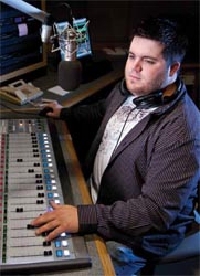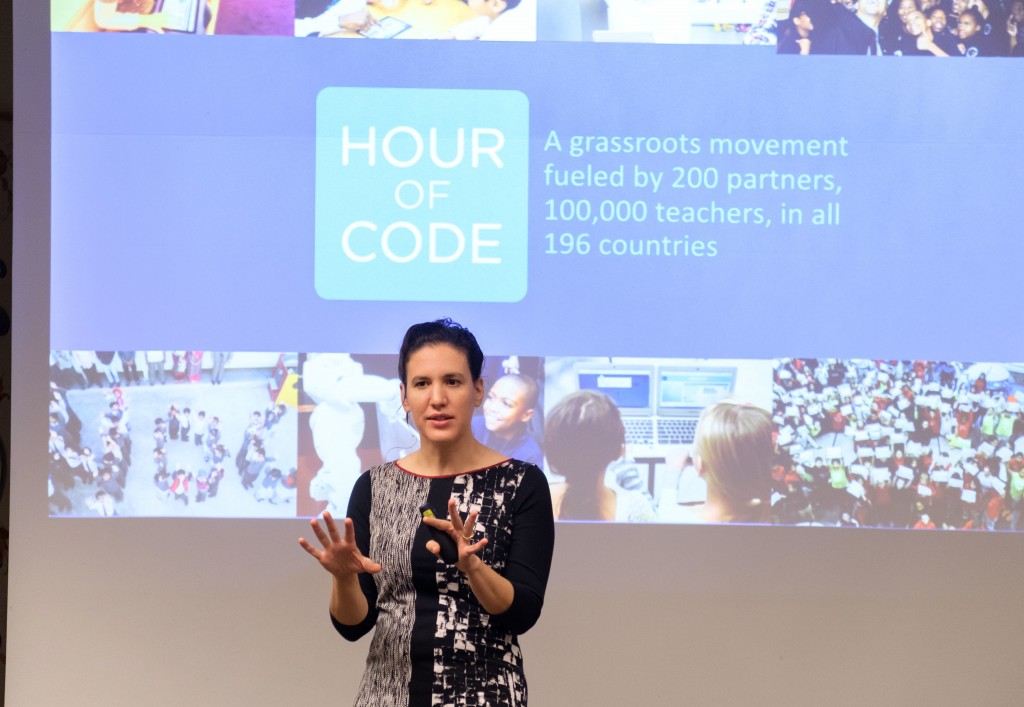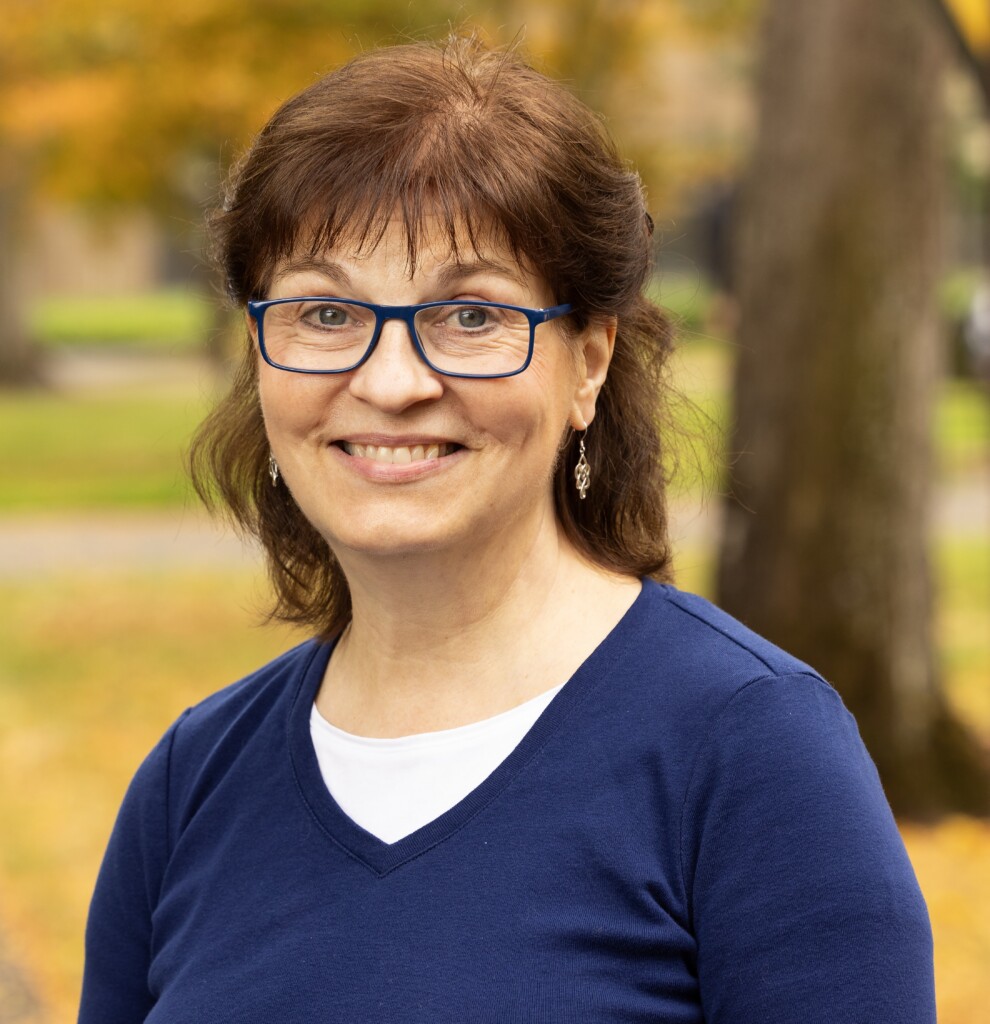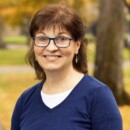Page 28 • (2,790 results in 0.019 seconds)
-

Aaron Hushagen’s cool internship: 88.5 KPLU-FM By Steve Hansen Aaron Hushagen is a sociology major. He’s also an audiophile. So, during his senior year when he was taking an audio production class, he found himself thinking that he’d like to learn more about it. It…
November 29, 2011 Aaron Hushagen’s cool internship: 88.5 KPLU-FM By Steve Hansen Aaron Hushagen is a sociology major. He’s also an audiophile. So, during his senior year when he was taking an audio production class, he found himself thinking that he’d like to learn more about it. It didn’t matter that it didn’t have anything to do with his major. He asked his professor, Bob Holden, if he knew of any opportunities where he could continue to learn about the subject. Soon, Hushagen found himself
-

As the pandemic has progressed many of found ourselves thinking more about health and disease, however, Thu “Kim” Le ‘21 has spent most of her college career researching these topics. Le recently completed a six-week summer internship with the Benaroya Research Institute (BRI) at Virginia…
Thu “Kim” Le interns with Benaroya Research Institute, doing cancer research from home Posted by: bennetrr / September 17, 2020 September 17, 2020 By Rosemary Bennett '21Marketing & CommunicationsAs the pandemic has progressed many of found ourselves thinking more about health and disease, however, Thu “Kim” Le ‘21 has spent most of her college career researching these topics.Le recently completed a six-week summer internship with the Benaroya Research Institute (BRI) at Virginia Mason, where
-

Computer science drives innovation throughout the US economy, but the subject remains neglected or marginalized in K-12 education. Can more be done to improve student access to this important way of thinking? Please join Alice Steinglass of Code.org on October 9, 2018 at Pacific Lutheran…
Alice Steinglass Visits October 9 for Workshop and Lecture Posted by: halvormj / October 1, 2018 Image: Alice Steinglass, President of Code.Org in Seattle October 1, 2018 Computer science drives innovation throughout the US economy, but the subject remains neglected or marginalized in K-12 education. Can more be done to improve student access to this important way of thinking? Please join Alice Steinglass of Code.org on October 9, 2018 at Pacific Lutheran University (Tacoma) for the 14th annual
-

Associate Professor of English | Department of English | solveig.robinson@plu.edu | 253-535-7241 | Dr.
Outrage': George Bentley, Robert Black, and the Condition of the Mid-List Author in Victorian Britain." Book History Vol. 10, 2007: "'At All Times Conspicuous as Art': Henry James, Margaret Oliphant, and Resistance to Decadence." Henry James Against the Aesthetic Movement 2006: "Expanding a 'Limited Orbit': Margaret Oliphant, Blackwood's Edinburgh Magazine, and the Development of a Critical Voice." Victorian Periodicals Review Vol. 38.2, 2005: "Of 'Haymakers' and 'City Artisans': The Chartist Poetics
-

Associate Professor of English | International Honors | solveig.robinson@plu.edu | 253-535-7241 | Dr.
Outrage': George Bentley, Robert Black, and the Condition of the Mid-List Author in Victorian Britain." Book History Vol. 10, 2007: "At All Times Conspicuous as Art': Henry James, Margaret Oliphant, and Resistance to Decadence." Henry James Against the Aesthetic Movement 2006: "Expanding a 'Limited Orbit': Margaret Oliphant, Blackwood's Edinburgh Magazine, and the Development of a Critical Voice." Victorian Periodicals Review Vol. 38.2, 2005: "Of 'Haymakers' and 'City Artisans': The Chartist Poetics
-

Director, Publishing and Printing Arts Program | Interdisciplinary Programs | solveig.robinson@plu.edu | 253-535-7241 | Dr.
': George Bentley, Robert Black, and the Condition of the Mid-List Author in Victorian Britain." Book History Vol. 10, 2007: "'At All Times Conspicuous as Art': Henry James, Margaret Oliphant, and Resistance to Decadence." Henry James Against the Aesthetic Movement 2006: "Expanding a 'Limited Orbit': Margaret Oliphant, Blackwood's Edinburgh Magazine, and the Development of a Critical Voice." Victorian Periodicals Review Vol. 38.2, 2005: "Of 'Haymakers' and 'City Artisans': The Chartist Poetics of Eliza
-

Director, Publishing & Printing Arts Program | Publishing and Printing Arts | solveig.robinson@plu.edu | 253-535-7241 | Dr.
Outrage': George Bentley, Robert Black, and the Condition of the Mid-List Author in Victorian Britain." Book History Vol. 10, 2007: "'At All Times Conspicuous as Art': Henry James, Margaret Oliphant, and Resistance to Decadence." Henry James Against the Aesthetic Movement 2006: "Expanding a 'Limited Orbit': Margaret Oliphant, Blackwood's Edinburgh Magazine, and the Development of a Critical Voice." Victorian Periodicals Review Vol. 38.2, 2005: "Of 'Haymakers' and 'City Artisans': The Chartist Poetics
-
Within the environmental studies curriculum at PLU, the social sciences provide perspectives on the environment from a human point of view, balancing the ecological perspectives contributed by the
EthicsNathalie op de Beeck, Associate Professor of EnglishMeet Our FacultyPassionate faculty committed to critical thinking and care for the Earth support environmental studies students as they learn how to integrate multiple disciplinary perspectives to environmental issues on campus and on the Clover Creek watershed.View allEarth Day LecturesEach spring semester, Environmental Studies coordinates the PLU Earth Day Lecture. Our speakers have included prominent scholars, noted activists, and political
-

Dear Campus Community: The news from Charlottesville, Virginia over the past few days has shocked, angered and saddened many of us. Our prayers are with the victims of violence, their families, and other loved ones. White supremacists’ display of racism, anti-Semitism and raw hatred is…
, and other loved ones. White supremacists’ display of racism, anti-Semitism and raw hatred is antithetical to what this nation and the PLU community stands for. PLU’s mission calls us to care for others, for their communities and for the Earth, and we remain resolute in our commitment to address bigotry whenever and wherever it arises on our campus and within our communities. I caution against generalizations and judgement of those with whom we may disagree; that kind of thinking and resulting
-
During J-Term 2021, students in Assistant Professor Kate Drazner Hoyt’s Media Literacy COMA 388 explored topics such as: – the role that the press plays in sustaining democracies; – the different forms of online misinformation and disinformation; – the rise of conspiracy theories on web…
media publications. This doesn’t explain every feature, rather it highlights utilities that may or may not have any convenient explanation published anywhere. . . After reviewing this media literacy tool, people should understand the acceptable communicative behaviors on these apps. They should also come to an understanding that these are all sources meant for forms of social interaction. As long as people approach social media with a basic understanding and critical thinking skills, social media
Do you have any feedback for us? If so, feel free to use our Feedback Form.


